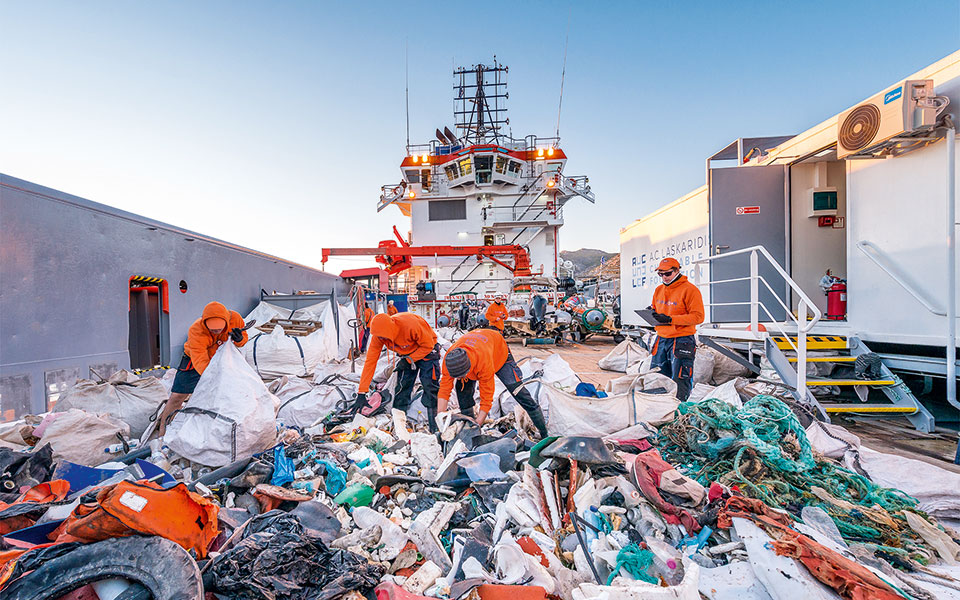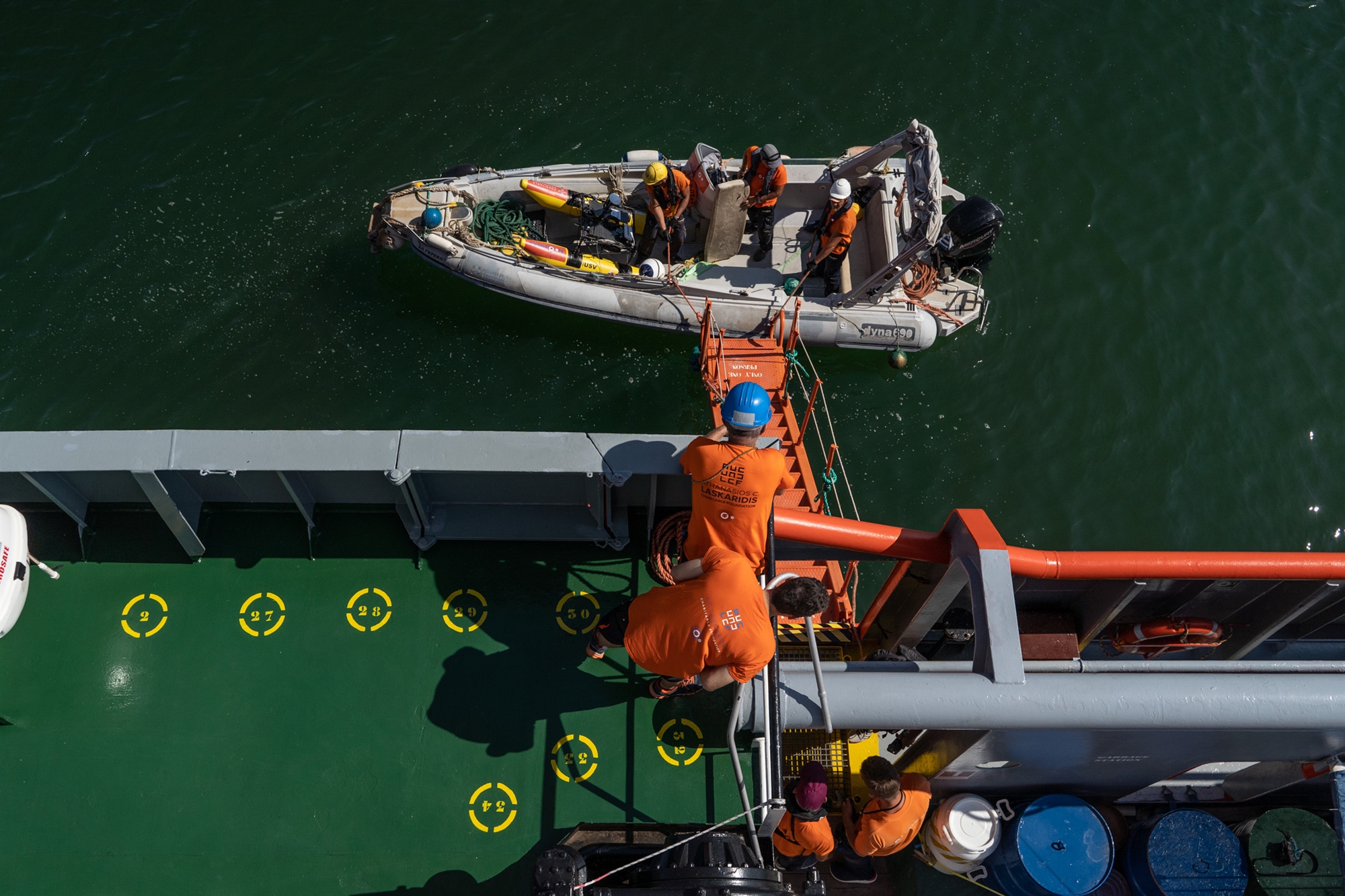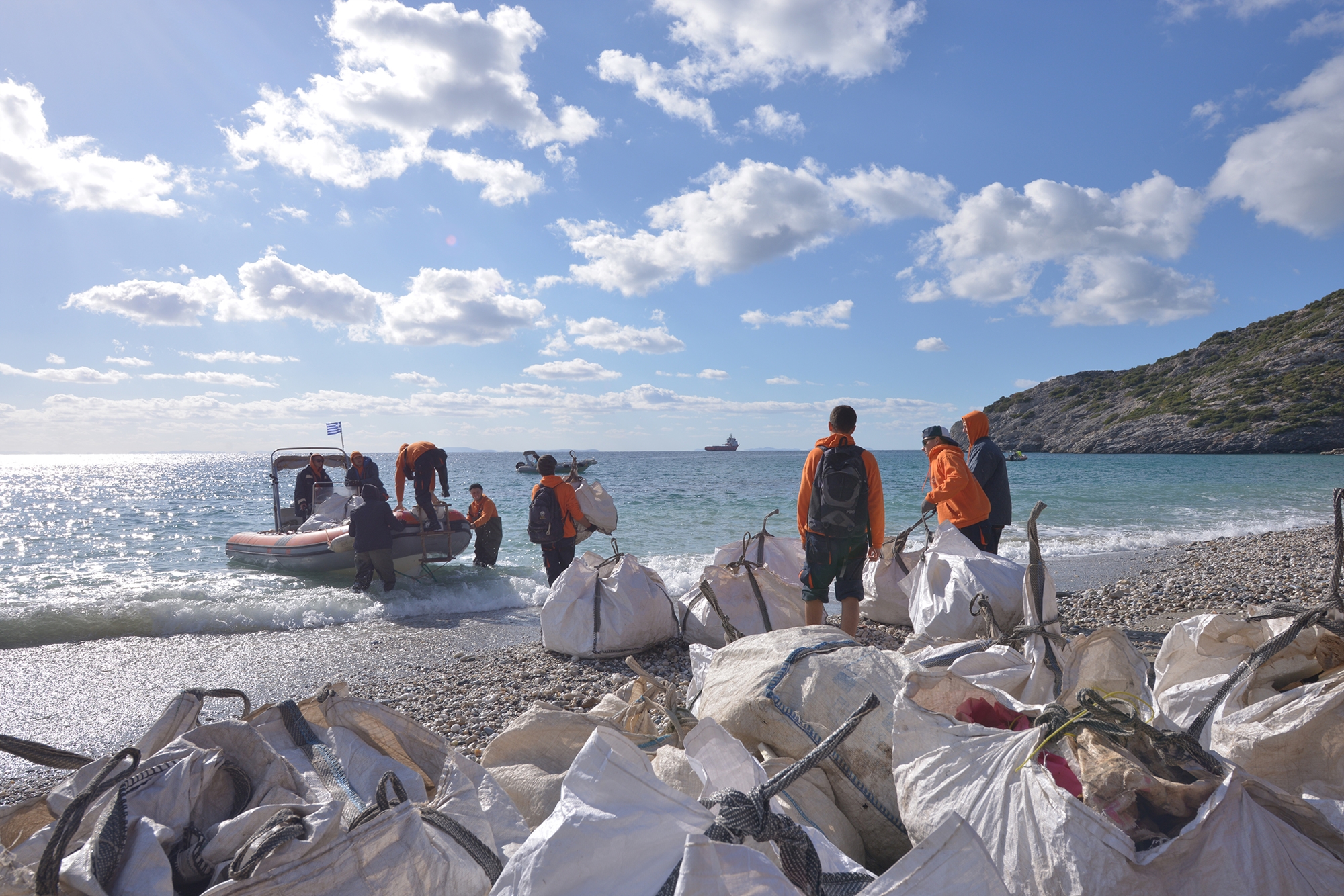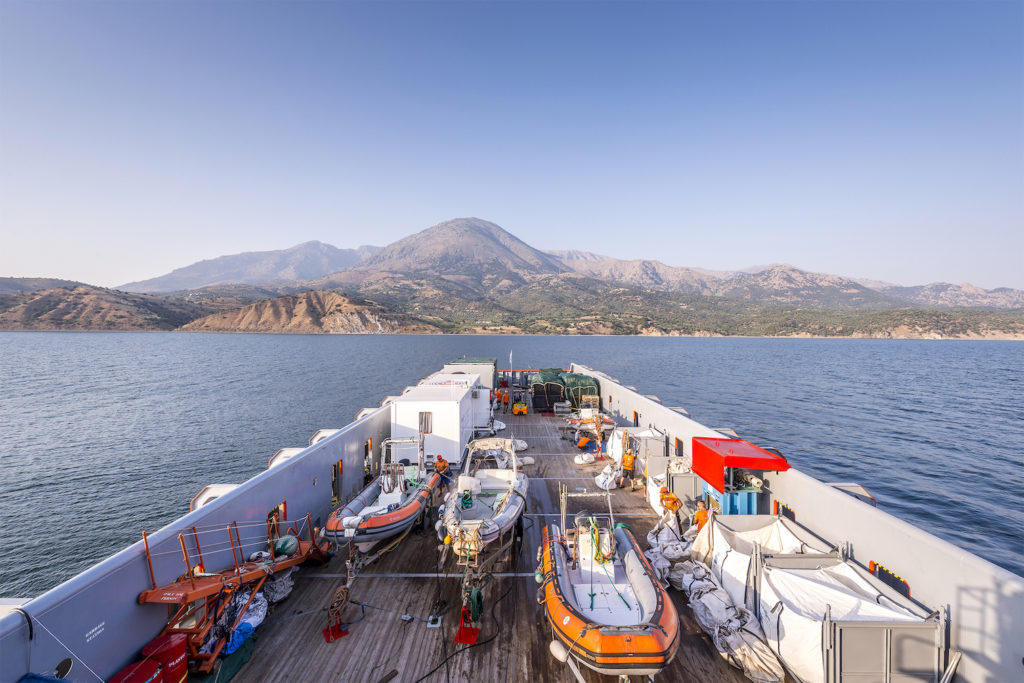
As soon as this ship “Typhoon” it stands out on the sea horizon and attracts the eyes of those on the shore, thanks to its volume and rich color. Unlike the “Typhon” from Greek mythology, a creature terrifying in appearance and actions, the modern “Typhon”, a warship Athanasios K. Laskaridis Charitable Foundation, has good intentions. “Three hundred and sixty-five days a year he is at sea for the purpose of cleaning the remote beaches of the country.” Dr. Angelica Cosmopoulou explains “K”., executive director of the foundation. Yesterday, after three and a half years, the cleaning of beaches throughout the island of Greece was completed – 480 tons of garbage were collected.

“Plastics predominate, especially single-use plastics, packaging for food, water and detergents, pieces of Styrofoam, nylon, cigarette butts and leftovers from fishing activities (nets, etc.),” notes Ms Cosmopoulou, who is often involved in cleaning take-offs and last year he spent 130 days in the field. “We also came across refrigerators, supermarket carts, car and boat seats, shoes, cages, and even fake IDs cut up and thrown away,” he adds. “I will never forget our first Typhoon action on Saronicos, Aegina, Hydra, Poros and Methane,” she says. “We faced incredible environmental pollution and when we got back to the ship, we saw in the distance an uncontrolled landfill on the island.” Of the waste found on the beach, 20% is the result of human-caused coastal activities, however the remainder is related to land-based waste disposal. “Uncontrolled landfills are becoming the number one cause, and locals are now aware of it.” The emergence of the pandemic seems to have left its mark on waste, with masks, gloves and self-checks taking the lead in the post-COVID era. “Accordingly, the historian of the future will be able to draw many conclusions about our smoking habits,” notes Dr. Cosmopoulou. “Five to six years ago, conventional cigarette residue dominated, then filters from twist cigarette use began to dominate, and now we collect residue from twist cigarettes and e-cigarettes.”
The operational vessel, built in Norway, has a huge empty deck, four self-contained inflatable boats and a mechanism that locks it in place with great stability, allowing for underwater action and precise “surgical movements”. A staff of more than 30 performs two shifts a day cleaning the beach as the ship moves from shore to shore. “Eight to ten people board each inflatable boat and take on the task of cleaning up the coast, which they have already defined geographically from the previous day,” she notes. It then delivers the waste to the site, where it is registered, sorted and weighed. They are divided into what requires conventional disposal and what else can be recycled, compacted and stored on board until they move on to the next stage. “Project Typhoon is a unique program in the world,” she notes. Ms. Evy Lazou-Laskaridis, president of the foundation. “Its great importance lies in the protection of the coastal environment in remote areas, where pollution accumulates over the years, threatening aesthetics, marine ecosystems and human health.”

Of the litter on the beach, 20% is the result of anthropogenic coastal activities, while the rest is land related.
Therefore, the priority of the program is the shores that are inaccessible and no one else can clean them. Sometimes the group finishes the work in an hour, and sometimes they stay on the second day in the same place. For example, on Lemnos in the summer of 2021, the ship stood idle for three months in a row due to local currents. Leaving, he collected three and a half tons of garbage.
The idea of the ambitious project “Typhoon” belongs to him. Mr. Athanasios Laskaridis. For many years, the family has observed widespread pollution of the coast during their private sea voyages. Thus, fatally, the vacation was combined with the cleanup of the beaches, which they found littered with garbage. In 2015, in the midst of an unprecedented economic and migration crisis, a foundation is launched that seeks to address, among other things, the problem of marine pollution. Thus, from the very beginning, the foundation organizes the cleaning of the beaches, especially in summer, or finances the cleaning carried out by ten non-governmental organizations active in this area. Along with subbotniks, he organizes actions with the local population, briefings in the schools of the island regions, and the “end recipient” is always the environment. In this context SeaChange Program for the Greek Islands on the ten Greek islands of the Aegean, with similar characteristics in terms of morphology and the environmental disturbance they receive.

Yesterday in Astypalaia, after three and a half years, the first cycle of cleaning the shores of the Typhoon on the entire island of Greece was completed. The flagship will sail to Crete, the starting point of its operations in 2019.

Source: Kathimerini
Ashley Bailey is a talented author and journalist known for her writing on trending topics. Currently working at 247 news reel, she brings readers fresh perspectives on current issues. With her well-researched and thought-provoking articles, she captures the zeitgeist and stays ahead of the latest trends. Ashley’s writing is a must-read for anyone interested in staying up-to-date with the latest developments.